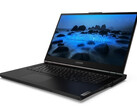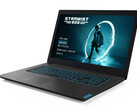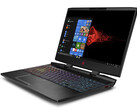Nvidia GeForce GTX 1650 Laptop GPU Performance Review
The GeForce GTX 1650 is the fifth laptop GPU that Nvidia has released based on its Turing architecture. The card does not carry a Max-Q moniker either, so it should not be handicapped by power restrictions like the GeForce GTX 1050 Ti Max-Q or GeForce GTX 1050 Max-Q. We have already seen how the RTX 2080, RTX 2070 and RTX 2060 performed along with the GeForce GTX 1660 Ti, and now it is the turn of the GTX 1650.
Compared to the GeForce GTX 1660 Ti, the GTX 1650 not only has 512 fewer shaders but also 2 GB less VRAM. Moreover, while the 6 GB of VRAM in the GeForce GTX 1660 Ti operates at 192-bits, the 4 GB in the GTX 1650 only has a 128-bit interface. The GTX 1660 Ti also has an edge on clock speeds, with the cheaper card operating at between 1,395 and 1,560 MHz, which is marginally lower than the 1,455 to 1,590 MHz that the GeForce GTX 1660 Ti reaches.
However, the GTX 1650 supports Nvidia’s GPU Boost technology, which allows our test unit to reach 1,935 MHz in GPU-Z. The card also averages 1,710 MHz in Unigine Heaven 4.0, which is an impressive result.
Test System
Our test system is the Acer Nitro 5, which notebooksbilliger.de kindly provided us for this review. The device is the entry-level model, which comes with an Intel Core i5-9300H processor, 8 GB RAM and a 512 GB SSD. The more expensive model comes with a Core i7-9750H, for reference. However, since most 3D applications are GPU rather than CPU limited, the Core i5 should not make a discernible difference to our test results.
| Laptop | Acer Nitro 5 |
|---|---|
| Processor | Intel Core i5-9300H |
| RAM | 2x 16 GB DDR4 2,666 |
| Storage | 512 GB SSD |
| GPU | NVIDIA GeForce GTX 1650 |
| Shader units | 1,024 |
| Base clock speed | 1,395 MHz |
| Turbo clock speed | 1,560 MHz |
| VRAM | 4 GB GDDR5 |
| Memory connection | 128 bit |
| Memory clock speed | 8000 MHz |
| Driver | ForceWare 417.88 |
We should point out though that we upgraded the RAM in our test device from two sticks of 4 GB DDR4 2,666 to two sticks of 16 GB DDR4 2,666. We also left the graphics driver in its preinstalled state, which was ForceWare 417.88 at the time of testing. We shall cover the Nitro 5 in greater depth in our upcoming review.
Synthetic Benchmarks
DirectX 11
We have not only included the more expensive GeForce GTX 1660 Ti and RTX 2060 but also the older GTX 10-series chips to see how the GTX 1650 performs against its predecessors. As expected, the GTX 1650 comfortably outperforms the lesser GTX 10-series cards, although it is still a way off the GeForce GTX 1060. Overall, our review unit finished right in the middle of our 3DMark Fire Strike comparison table.
In general, the more demanding a benchmark is, the larger the gap between the GTX 1650 and the GeForce GTX 1050 Ti. The Time Spy benchmark, which we shall cover below, is an example of this. Naturally, the GTX 1650 cannot compete with the GeForce GTX 1660 Ti and the RTX 2060, which scored 54% and 70% more, respectively, than their lesser Turing sibling.
| 3DMark - 1920x1080 Fire Strike Graphics | |
| MSI GL73 8SE-010US | |
| Schenker Compact 15 | |
| Asus Zephyrus S GX531GM | |
| Acer Nitro 5 | |
| Acer Aspire 7 A715-72G-704Q | |
| Asus FX504GD | |
DirectX 12
The gap between the GTX 1650 and the GeForce GTX 1060 is much closer in the Time Spy benchmark than it was in Fire Strike. Despite having more shaders and VRAM among other advantages, the GeForce GTX 1060 only scored 6% more than our test device, which underlines the improvements Nvidia has made with its Turing architecture. The GTX 1650 also scored 45% more than the GeForce GTX 1050 Ti in the same benchmark and a whopping 115% more than the lowly GeForce GTX 1050.
| 3DMark - 2560x1440 Time Spy Graphics | |
| MSI GL73 8SE-010US | |
| Schenker Compact 15 | |
| Asus Zephyrus S GX531GM | |
| Acer Nitro 5 | |
| Acer Aspire 7 A715-72G-704Q | |
| Asus FX504GD | |
Gaming Benchmarks
Full HD (1920x1080)
The GTX 1650 handles modern triple-A games at 1080p with ease. Our review unit averaged 64.8 FPS in the Battlefield V benchmark at maximum details, which is impressive. By contrast, the GeForce GTX 1050 Ti and GeForce GTX 1050 averaged 20% and 44% less than their successor, while the GTX 1650 achieved just 8% fewer frame rates than the GeForce GTX 1060. The game is playable on all GPUs at these settings except for the GeForce GTX 1050-powered laptop, for reference.
| Battlefield V - 1920x1080 Ultra Preset | |
| Schenker XMG Ultra 15 | |
| Schenker Compact 15 | |
| MSI GT62VR | |
| Acer Nitro 5 | |
| Acer Aspire 7 A715-72G-704Q | |
| Asus GL753VD | |
QHD (2560x1440)
Gaming at QHD is when the GTX 1650 starts to show its limits. Battlefield V remains playable at maximum graphics in QHD, but our review unit only averaged 47.3 FPS, which looks noticeably less fluid than 60 FPS and beyond would. The same applies to the GeForce GTX 1060 though so you would need to step up to the GeForce GTX 1660 Ti or RTX 2060 to experience at least 60 FPS at maximum graphics and QHD in recent triple-A titles.
| Battlefield V - 2560x1440 Ultra Preset | |
| Schenker XMG Ultra 15 | |
| Schenker Compact 15 | |
| MSI GT62VR | |
| Acer Nitro 5 | |
| Asus GL753VD | |
UHD (3840x2160)
However, 4K proved too much for all the GPUs in our comparison table. Even the RTX 2060 struggles in this resolution at maximum graphics, so we would recommend considering a GeForce RTX 2070 or GeForce RTX 2080 if you want to game in 4K.
We shall be updating our GPU benchmarks and games list pages in the coming days with more details about the GTX 1650 and how it performs in our titles. Please see these pages for a fuller picture about Nvidia's new midrange GPU.
| Battlefield V - 3840x2160 Ultra Preset | |
| Schenker XMG Ultra 15 | |
| Schenker Compact 15 | |
| MSI GT62VR | |
| Acer Nitro 5 | |
| Asus GL753VD | |
Verdict
The GeForce GTX 1650 is a successful upgrade over its GTX 10-series predecessors. The DirectX 12 card lacks the power necessary to game comfortably in QHD or UHD, at least at higher graphics settings, but it thrives in Full HD. Maximum graphics plus anti-aliasing are no match for the GTX 1650, albeit with a few exceptions: Anno 1800 & Metro Exodus being two games where the GPU struggles.
The GTX 1650 only falls just short of the GTX 1060 too, despite the latter being much better-equipped on paper. The performance of the GTX 1050 and GTX 1050 Ti pale in comparison to what the GTX 1650 achieves as well.
If you game regularly, then the GTX 1650 will probably fall short of your expectations. We would recommend at least the GTX 1660 Ti if you fall into that category as it offers 50% better performance than the GTX 1650. However, NVIDIA’s new midrange GPU is still a compelling option for casual gamers and content creators, nonetheless.



















